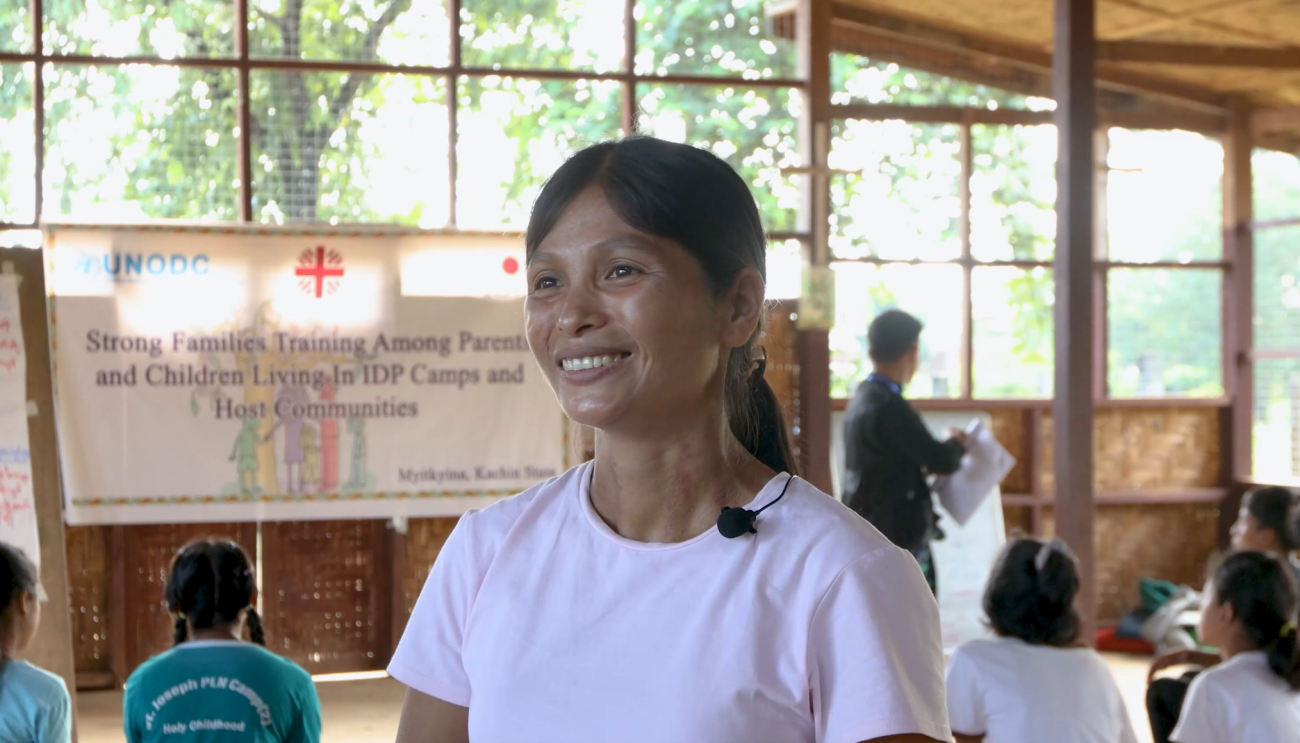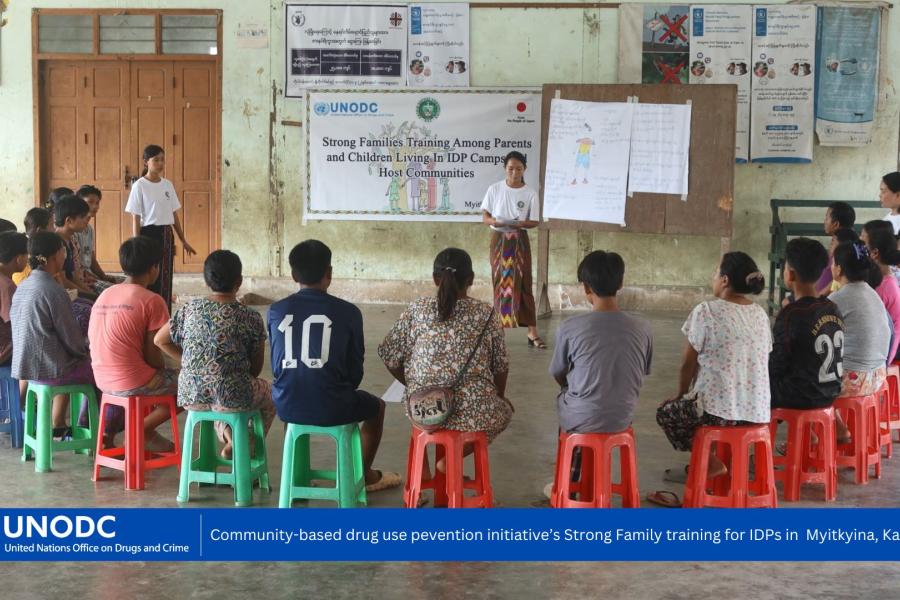Investing efforts in prevention: Creating a legacy for future generations

In Myanmar, the drug crisis is impacting many individuals, especially Internally Displaced Persons.
"I didn’t know nurturing my children with love and care could prevent them from future drug abuse. From this training, I've learned that my approach to parenting, poor family management skills, and high-stress levels can contribute to early drug abuse. This realization drives me to make positive changes for their future,” says a mother from Myitkyina at a humanitarian camp in Myanmar who participated in UNODC's Strong Family programme under a community-based drug use prevention initiative.
Stories like this serve as an example of the importance of evidence and community-based drug use prevention in the communities especially in the current situation where the poorest of the poor including the youth have easy access to drugs due to the increasing production of opium and synthetic drugs in the country together with the decreasing drug prices witnessed in 2022 and 2023.
In Myanmar, the drug crisis is impacting many individuals, especially Internally Displaced Persons (IDPs). Ongoing conflicts and humanitarian crises have led to increased displacement, and drug use has become a coping mechanism for trauma among IDPs with limited opportunities. Adding to the severity of the crisis, Myanmar has become the primary global source of opium production and the center of synthetic drug production in Southeast Asia, including methamphetamine and ketamine. This, coupled with the decreasing drug price and easy accessibility of drugs, particularly among the impoverished and young population, has contributed to a significant rise in drug use.
“Drug abuse has wide-ranging consequences, affecting individuals, families, communities, and society as a whole. It leads to increased crime, strained relationships, and economic instability. Additionally, the production of synthetic drugs in clandestine laboratories generates toxic chemical waste that is irresponsibly discarded, posing significant environmental risks,” says Yatta Dakowah, country manager of the UNODC Myanmar office.

Recognizing the challenges, UNODC initiated an evidence-based drug dependence treatment and prevention programme in selected states and regions, including Kachin, Shan North, Rakhine, Mon, Sagaing, Yangon, and Mandalay. UNODC’s efforts also include supporting programmes focusing on substance use prevention and community-based treatment, including HIV and hepatitis prevention and care initiatives in IDP settings and host communities through collaborating with local NGOs, civil society groups, and community leaders. Despite the efforts, there is still a clear need for more effective and practical approaches to drug use prevention, especially for the most vulnerable communities like women and youth in IDP camps across Myanmar.
“Substance use prevention aims to develop effective strategies to address risk and protective factors for children and youths. The primary objectives are to prevent or delay the initiation of drug use and, if drug use has already started, to prevent the progression to substance use disorders, harmful use, and dependence,” says Dr. Win Mar, Drugs and Health Specialist for the UNODC Myanmar Office.
Prevention efforts have many benefits and can potentially create a long-lasting impact. Investing in prevention can disrupt the cycle of drug use by addressing its root causes and risk factors. Family, school, and community programmes provide essential support to combat drug use, benefiting future generations. Besides, evidence-based prevention is cost-effective, saving at least $10 in future health costs for every dollar spent.
UNODC’s drug use prevention support in communities including IDPs across Myanmar is part of its greater effort to support local CSOs, NGOs, and community leaders in better addressing drug use within their communities and tackling the drug-related crisis in Myanmar. UNODC stays committed to working towards responses that are not only more effective but also protect the health and human rights of some of the most vulnerable community members especially IDPs across Myanmar.
To learn more about UNODC Myanmar, please click here.




